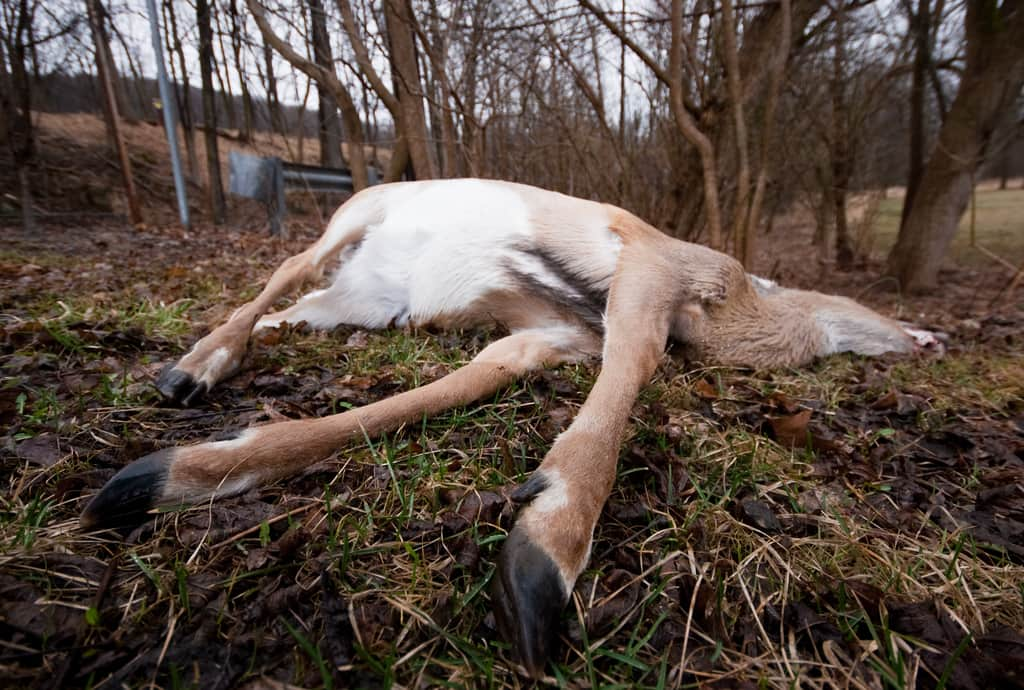Texas Records First-ever Case of Chronic Wasting Disease
OutdoorHub Reporters 07.17.15

Texas officials held a special, rushed meeting on Thursday after experts confirmed what is believed to be the state’s first recorded case of chronic wasting disease (CWD) earlier this month.
In the meeting, hundreds of biologists, conservationists, and individuals involved in the captive deer industry gathered at Texas Parks and Wildlife (TPWD) Headquarters in Austin. They were there to discuss the case of CWD found in a Medina County deer farm, and what it could mean for the future of deer in Texas.
“It is important for all of us to remember that Chronic Wasting Disease doesn’t pick sides. It doesn’t make alliances,” Texas Parks and Wildlife Commission Chairman Dan Hughes Jr. said in a statement. “It affects all of us in this room. We (staff, commission, hunters, breeders, etc.) are all connected to this. I believe that we owe it to the people of Texas and the more than 4 million free-ranging and captive deer, to do everything we can to contain this threat and ensure it doesn’t spread. It is important that we hear and consider all perspectives.”
Chronic wasting disease is a deadly and highly transmissible neurological disease that affects deer and certain other ungulates. Believed to be spread through infectious proteins called prions, CWD is nearly always fatal to deer and is a great concern for biologists across the United States. Since it was first discovered in 1967 CWD has swept through at least 21 states and two Canadian provinces. According to the TPWD, CWD accounts for significant deer mortality in affected areas and could jeorpodize the Lone Star State’s $2.2 billion hunting industry.
“Because eradication is nearly impossible once CWD becomes established in a population, it is imperative that a sound CWD management program is established to reduce the severity of implications resulting from the disease,” the agency said in a statement.
State agencies generally employ a strict method of containment when it comes to CWD in captive deer: kill any believed to have come in contact with the infection. KSAT reports that a cull is exactly what officials have in mind for Texas Mountain Ranch, where the infected deer was found.
“We drew the black bean and that’s a tough deal, but in a way I’m glad, because I think we can take care of it,” said Robert Patterson, who owns Texas Mountain Ranch and found the dead deer himself. “I don’t think it will hurt the hunting in Texas one cent. People are still going to come here, because the deer are available.”
Patterson said that state agencies want to destroy 139 adult deer and 99 fawns at his ranch, but that’s where things get tricky. The deer breeder said he already shipped 900 deer to other facilities around the state. Patterson believes that destroying the animals can only do so much and that a better, more scientific method should be found to contain CWD.
Other deer breeders worry about what the disease could mean for the industry, especially if the state starts cracking down on captive deer facilities.
“It’s a very isolated deal, there is no need to get panicky about it and I’m certainly not and my operation is right down the road from where they found [the first case],” Jerry Johnston, owner of Double J Ranches, told KEYE TV.
Johnston added that if Texas officials follow the example set by other states in restricting or even closing deer farms, it could mean the end of deer breeding in the state.
“Anybody related to the industry is going to be out of business, it goes right down the food chain,” he said.
The Texas Parks and Wildlife Commission is not going to make any drastic moves just yet. The commission recommended on Thursday to test the affected deer, continue minimizing CWD risks to both captive and wild animals, and minimize the impact of CWD to hunters.
“Ultimately, I would like for us to not only be particularly sensitive to minimizing impacts to breeder facilities but also minimizing the risk to the state’s free-ranging deer herd which is critically important to Texas’ deer economy and other landowners and hunters across the state,” said Chairman Hughes.

